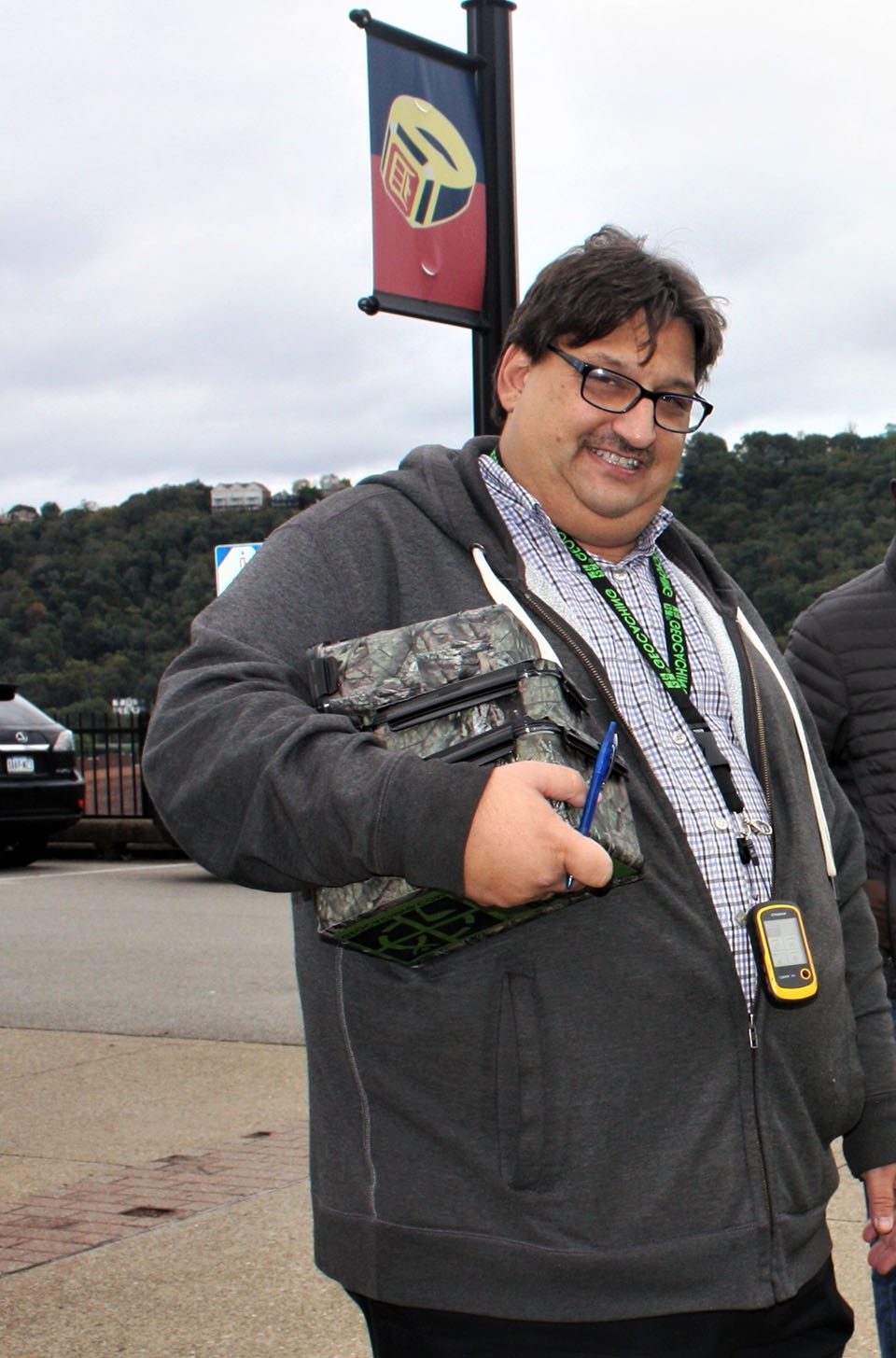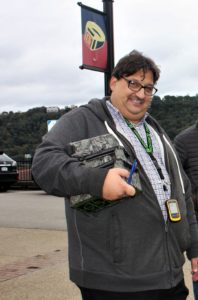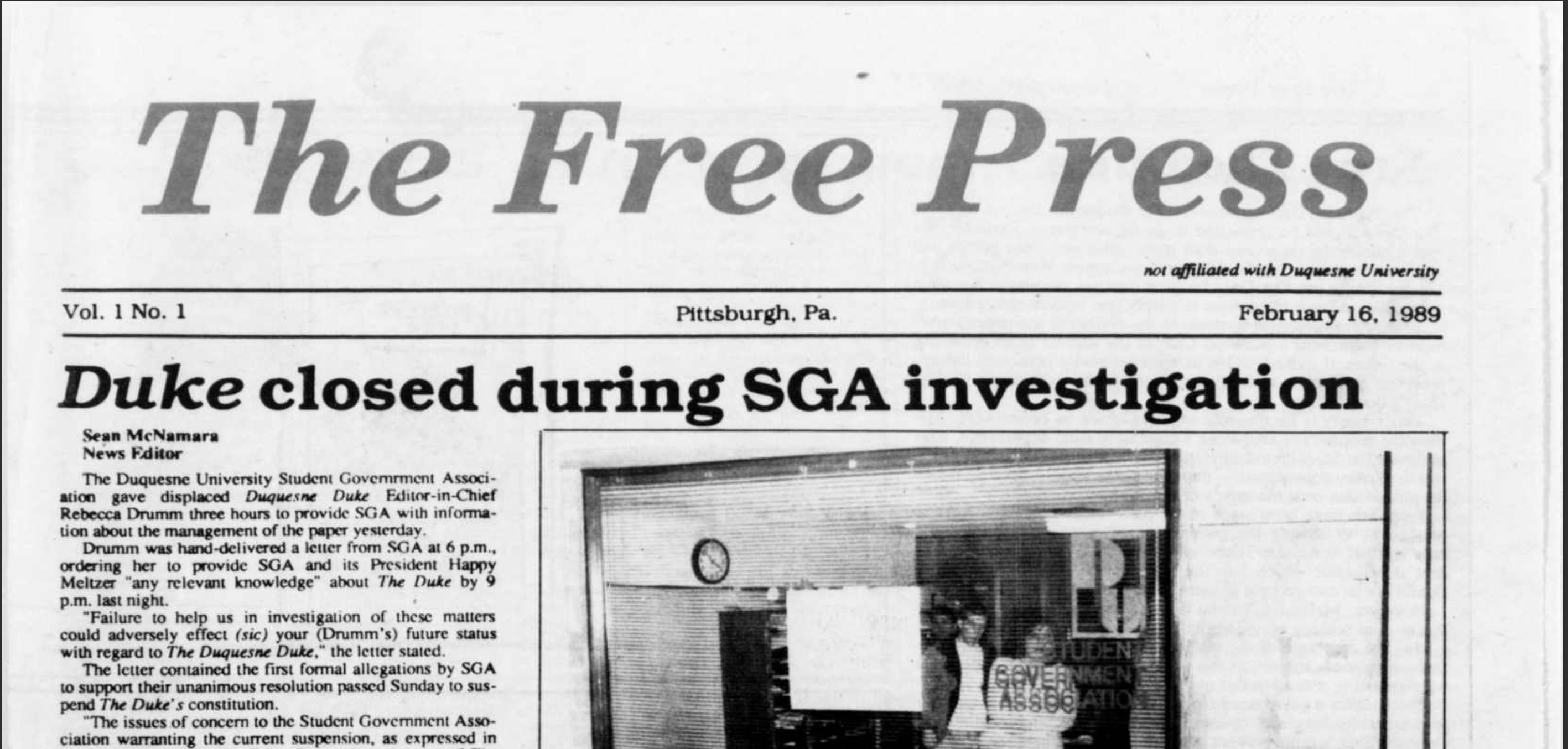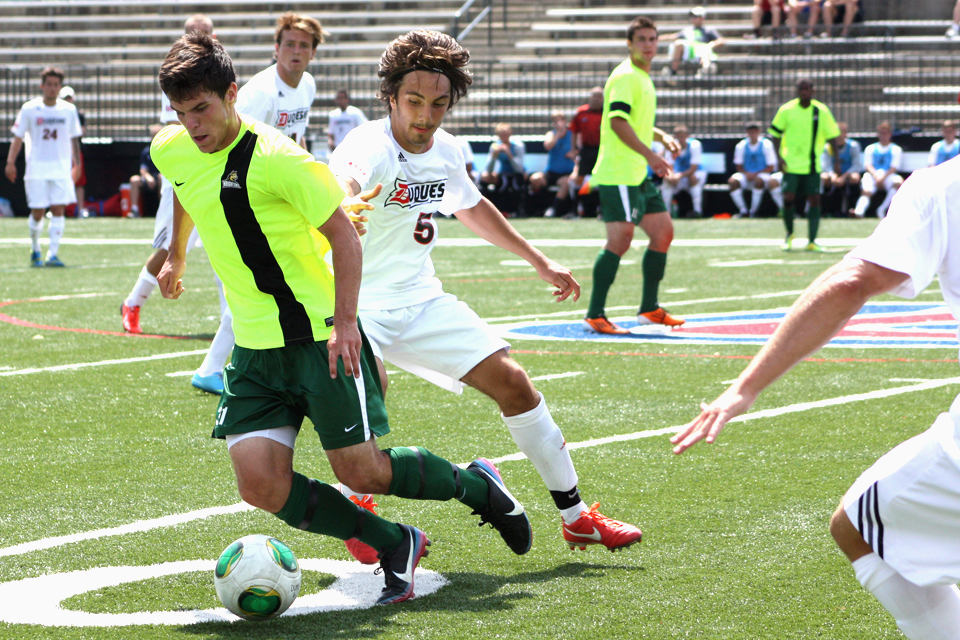
DU professor David Delmonico and his team hid geocaches around campus for a study.

DU professor David Delmonico and his team hid geocaches around campus for a study.
Kellen Stepler | Staff Writer
11/08/18
How many times have we heard the phrase, “Get off your phone and go out and play?”. Chances are, a lot. However, an activity new to Duquesne’s campus called geocaching, an outdoor treasure hunting game, requires users to have a GPS-enabled device or smartphone. Players then try to navigate and find the geocache, or container, hidden at a certain location.
David Delmonico, a professor of counselor education at Duquesne University, is researching if geocaching can improve student wellness and academic performance.
For the study, Delmonico and his team have hidden geocaching containers and “treasures” around the university’s campus, many of which will be labeled with the word “geocaching.” Duquesne’s Department of Public Safety is aware of the study and the locations of the geocache containers, and asks anyone who finds a geocache container to leave it in the same location in which it was found.
The current project is Delmonico’s third geocache research-based project. The first was a survey of how geocaching improved various facets of wellness, and the results are being presented at the Pennsylvania Counseling Association Conference in Pittsburgh. The second project trained non-geocachers on how to geocache, and tested if wellness was a benefit of the activity.
“The current project targets individuals with disabilities to see if they experience wellness benefits as a result of their participation,” Delmonico said.
Temple Lovelace, an associate professor of special education at Duquesne, is also researching geocaching.
“Geocaching brings people from multiple cultural backgrounds together for a common social activity that can also have the added benefit of physical, spiritual and emotional wellness,” Lovelace said.
Many believe that health and wellness is important for all, but Lovelace considers investigating if geocaching can improve student wellness and academic performance to be just as significant.
“It’s the best of both worlds in that geocaching can get students out of the classroom, get them active and provide another way for teachers to support learning,” Lovelace said.
The project was funded by Dick and Lisa Teets, Duquesne alumni who wanted to see more research and creative activities done to help individuals who have intellectual and developmental disabilities.
“Their gift has allowed for faculty and students across the counselor education and special education programs to collaborate,” Delmonico said.
As a result, Delmonico invited members of the St. Anthony School Programs, a Catholic-based inclusive educational environment for children with intellectual disabilities between the ages of 5 and 21, to participate in the study.
Lisa Hendrickson, the high school and post-secondary supervisor of the St. Anthony School programs, is also excited for the project, citing teamwork, geography skills, physical activity and exploring the campus as benefits of the project.“Further benefits are the future collaborations this may lead to within the education department that can enhance our students’ educational programming and enhance their skills,” Hendrickson said.
Lovelace hopes the project inspires the Duquesne community to begin geocaching.
“We want for the Duquesne community to learn more about the benefits of geocaching, both as a way to increase physical activity, and also as a way to connect with people across the university, region and perhaps even around the world.” Lovelace said.




